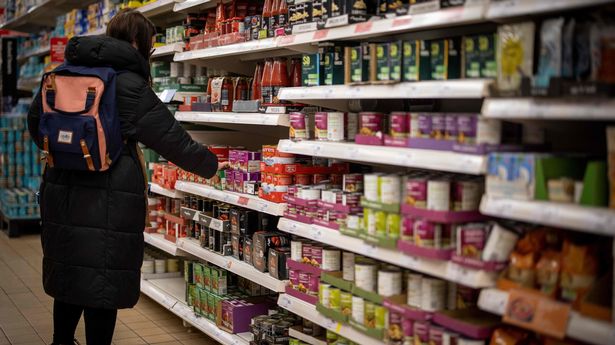Sainsbury’s has promised to price match Aldi on up to 200 products in its convenience stores.
The supermarket already matches prices to Aldi on more than 500 own-label and branded products in larger stores and online. But its latest update means shoppers will also see items that are the same price, or cheaper than Aldi, in its 1,400 Sainsbury's Local shops. The scheme will replace the “pocket friendly prices” campaign which was introduced last year to highlight lower prices in its convenience stores.
Sainsbury's says it is the first retailer to match to Aldi in convenience stores. Some of the items covered by the promise include staples like milk, bread, butter, jam, peanut butter, honey, pasta, rice, salad, tuna, chicken, steak, potatoes and vegetable oil.
Simon Roberts, chief executive of Sainsbury’s, said: “In our Sainsbury’s Locals, we’ve worked hard to offer market-leading prices on essential items and popular breakfast, lunch and dinner staples. We have also refreshed our local store layouts and rebalanced space, increasing the number of products in store by 7% and adding more food-on-the-move products – the primary mission of most convenience shoppers.”
It comes after a recent study by Which? found shoppers could be paying up to a fifth more in convenience stores compared to larger branches of the same supermarket. Which? compared the cost of popular grocery items on three occasions in June and July this year at Morrisons Daily, Sainsbury’s Local and Tesco Express against prices at their full-sized stores.
Their basket contained 42 popular branded and own-label products all commonly available in convenience stores, such as cheese, pasta and ice cream. While Sainsbury’s and Tesco had fewer variations in their prices between convenience stores and larger stores, Which? found Nectar members could still be paying an average of 14% more on average at Sainsbury’s Local.
Which? acknowledged that Sainsbury's, Morrisons and Tesco have committed to offer a broader range of budget and lower-priced ranges in their convenience stores as a result of the consumer group's campaigning. Ele Clark, Which? Retail editor, said: “Unfortunately, many people are without easy access to transport or online deliveries which leaves them reliant on smaller nearby stores.
“Convenience stores may often be easier to travel to and handy for shoppers who need to stock up on a few essentials, but people who have to use them regularly will be spending significantly more over the course of a year than those with access to larger supermarkets."
Tom Ironside, director of business and regulation at the British Retail Consortium, which represents the supermarkets, said: “Retailers always seek to offer their customers the best possible prices and they will provide consistent pricing across stores of a similar size. However, smaller stores can incur proportionally higher costs than larger outlets, which explains why sometimes products have to be charged at a higher price.”
